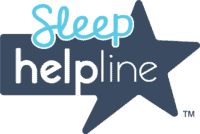Navigating narcolepsy doesn’t come with a roadmap, but it should! What do you wish you had known when you or your loved one was diagnosed? Our first Narcolepsy Nerd Alert broadcast explored these topics and more, with audience members sharing valuable insight from their experiences.
The Narcolepsy Nerd Alert series invites listeners to dive deeper into specific topics relevant to living with narcolepsy. To explore more topics related to living with narcolepsy, visit our Narcolepsy Nerd Alert page and check out corresponding toolkits available to download for free.





